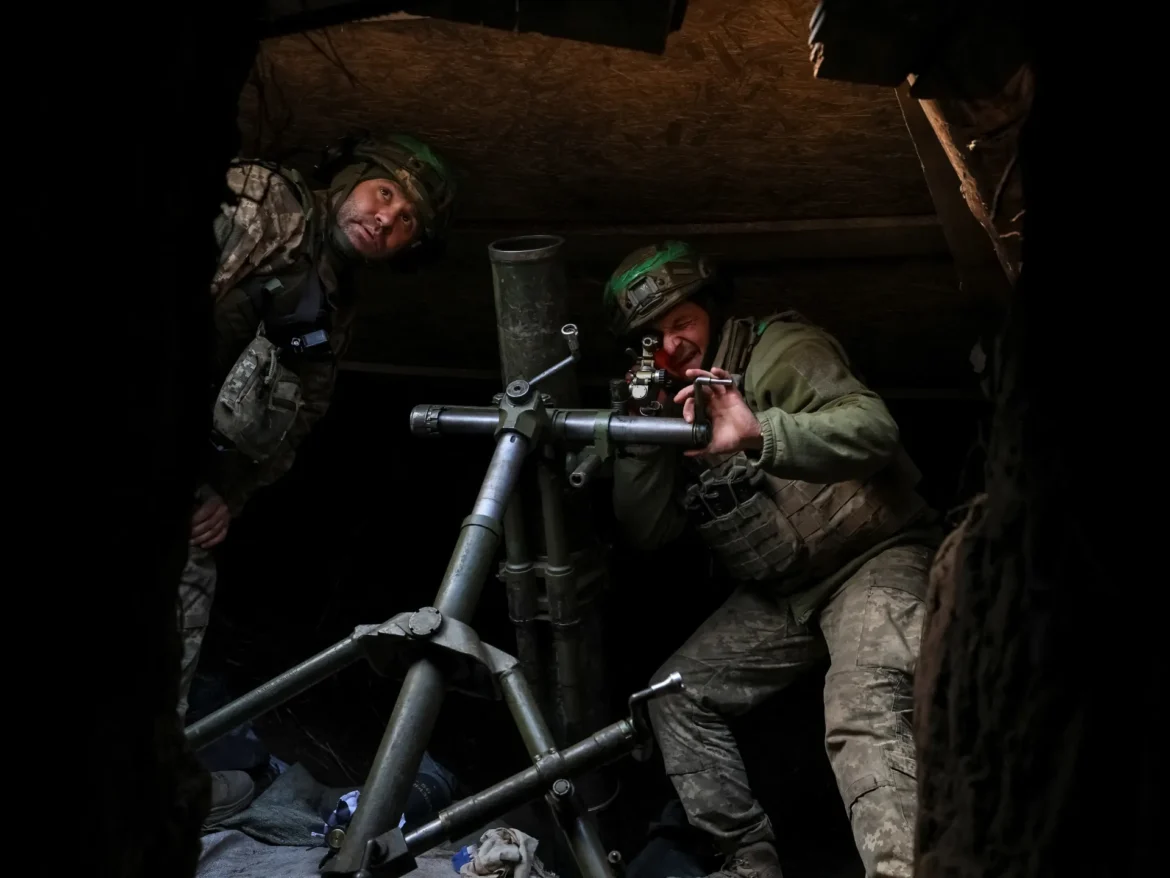A massive fire broke out at a major Russian oil refinery in the southern Volgograd region following an overnight drone attack by Ukrainian forces. The blaze, which was reportedly triggered by debris from the downed drone, was swiftly extinguished, according to regional Governor Andrei Bocharov. However, the attack resulted in injuries, with one worker being hospitalized for treatment.
This strike marks another escalation in Ukraine’s ongoing campaign to disrupt Russia’s critical fuel infrastructure, which plays a vital role in sustaining Moscow’s military operations. The targeting of oil refineries, fuel depots, and industrial sites has become a key strategy in Kyiv’s efforts to weaken Russia’s war capabilities by crippling its energy supply chain.
Andriy Kovalenko, the head of Ukraine’s Center for Countering Disinformation, described the Volgograd refinery as one of Russia’s largest oil processing facilities. The attack follows a similar strike earlier in the week, where Ukrainian forces claimed to have hit and set fire to a Lukoil refinery in the Nizhny Novgorod region, located east of Moscow. Additionally, last week’s drone assault on a refinery in Ryazan, southeast of Moscow, forced the facility to suspend operations temporarily.
Russia’s Ministry of Defence stated on Friday that it successfully intercepted 49 Ukrainian drones overnight. Among them, 25 were shot down over the southern Rostov region, while eight were neutralized in the Volgograd region. However, the repeated strikes on vital energy infrastructure indicate Ukraine’s determination to disrupt Russian fuel supplies, which are crucial for the country’s military logistics and battlefield operations.
In response, Russia launched a large-scale drone strike targeting Ukraine’s southern Odesa region overnight. The attack left four civilians injured in the city of Chornomorsk, according to regional Governor Oleh Kiper. Alongside the casualties, the assault caused significant destruction, damaging a hospital, an administrative building, a grain warehouse, residential homes, and several trucks. Additionally, the region experienced partial power outages, further straining an already fragile infrastructure.
Ukraine’s air force reported that its defense systems successfully intercepted 59 out of 102 Russian drones launched during the assault. Despite these efforts, the attack underscores the intensity of the ongoing drone warfare between the two nations, with both sides continuously targeting each other’s strategic assets.
The strike on Odesa came just a day after a devastating Russian drone attack on the eastern Ukrainian city of Sumy. In that incident, nine civilians were killed when a residential building was struck, further escalating the conflict. The Ukrainian government condemned the attack, with Andriy Yermak, head of the presidential office, accusing Russia of using Shahed drones packed with shrapnel to maximize civilian casualties.
Amid the intensifying conflict, both Russia and Ukraine continue to exchange accusations over attacks on civilians. On Friday, Russia’s Investigative Committee announced that it was investigating the deaths of 22 people in an occupied Russian village between September and November. According to Russian authorities, among the victims were eight women who were allegedly raped before being executed. Moscow claimed to have arrested a Ukrainian soldier in the western Kursk region, holding him responsible for the killings. Kyiv has yet to respond to these allegations.
Since the full-scale invasion began nearly three years ago, Russia and Ukraine have consistently blamed each other for civilian deaths. Ukrainian officials have accused Moscow’s forces of committing large-scale atrocities, including the massacre of civilians in towns like Bucha, near Kyiv, where hundreds were reportedly killed. Russia, however, has denied the allegations, dismissing them as staged fabrications. Independent fact-checking organizations and media outlets have refuted Moscow’s claims, providing substantial evidence of war crimes committed by Russian troops.
As the war enters another year, both sides continue to engage in large-scale attacks, with drone warfare emerging as a critical tool in their military strategies. While Ukraine intensifies its focus on destroying Russia’s energy infrastructure, Moscow continues its relentless bombardment of Ukrainian cities, leading to widespread destruction and further humanitarian suffering. The ongoing conflict shows no signs of de-escalation, keeping global attention firmly fixed on the region.
Stay ahead with the latest news on global innovation, leadership, entrepreneurship, business, and tech. Join us on WhatsApp or Telegram for real-time updates. Have a report or article? Send it to report@theinnovationtimes.com.
Follow us on X (Twitter), Instagram, LinkedIn, Pinterest, and Facebook for more insights and trends.



